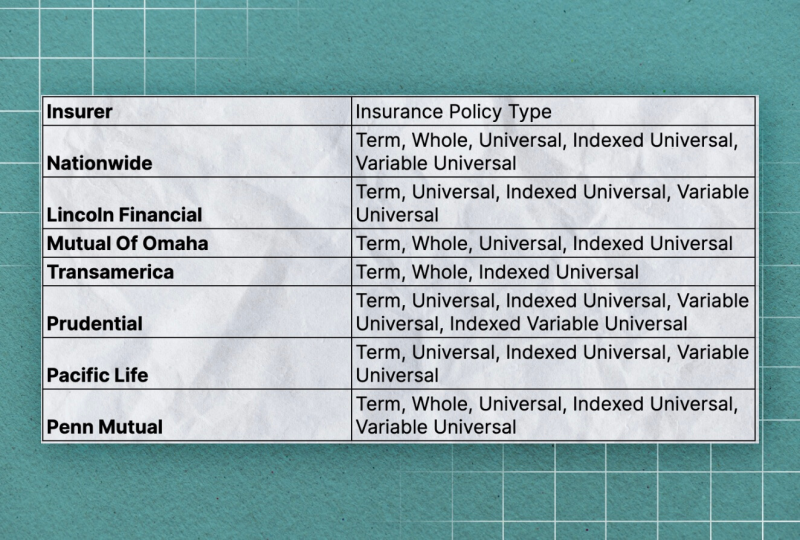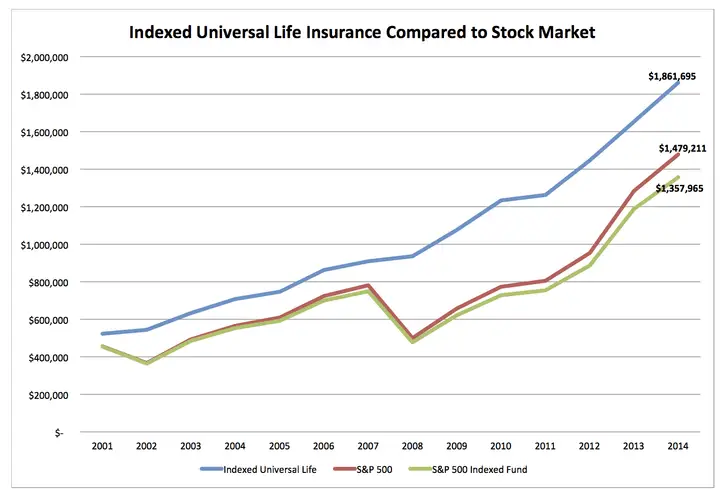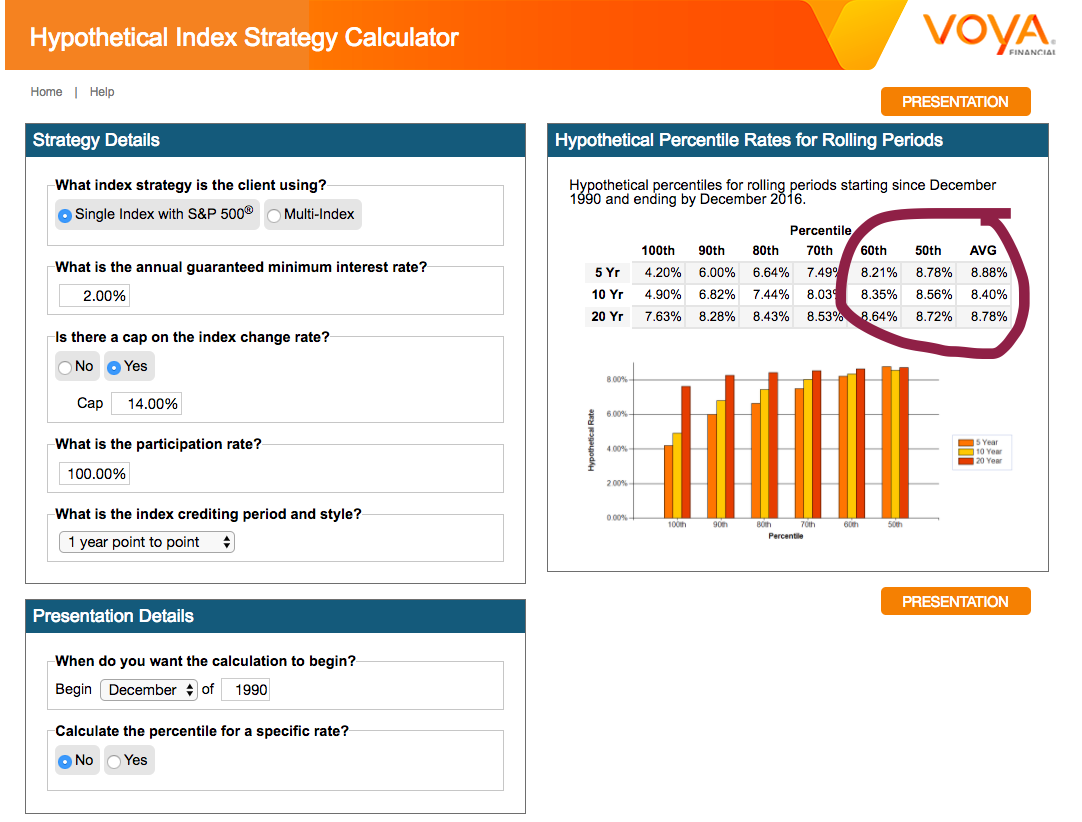All Categories
Featured
Table of Contents
Do they compare the IUL to something like the Vanguard Total Amount Stock Market Fund Admiral Shares with no tons, an expenditure ratio (EMERGENCY ROOM) of 5 basis factors, a turn over proportion of 4.3%, and an exceptional tax-efficient document of distributions? No, they contrast it to some horrible proactively managed fund with an 8% load, a 2% ER, an 80% turn over proportion, and an awful record of temporary funding gain distributions.
Mutual funds often make annual taxable distributions to fund owners, also when the worth of their fund has dropped in worth. Shared funds not only need income coverage (and the resulting annual tax) when the shared fund is going up in value, yet can also enforce revenue tax obligations in a year when the fund has actually decreased in value.
You can tax-manage the fund, harvesting losses and gains in order to lessen taxable distributions to the investors, but that isn't somehow going to transform the reported return of the fund. The possession of mutual funds may require the shared fund owner to pay projected tax obligations (flexible premium life).

IULs are very easy to place to make sure that, at the proprietor's fatality, the beneficiary is not subject to either income or estate tax obligations. The exact same tax obligation decrease techniques do not work virtually also with mutual funds. There are countless, commonly costly, tax obligation catches associated with the timed trading of common fund shares, traps that do not put on indexed life insurance policy.
Opportunities aren't very high that you're mosting likely to be subject to the AMT due to your mutual fund circulations if you aren't without them. The remainder of this one is half-truths at best. While it is true that there is no earnings tax obligation due to your heirs when they inherit the proceeds of your IUL policy, it is additionally true that there is no revenue tax obligation due to your successors when they inherit a shared fund in a taxed account from you.
Principal Group Universal Life
There are better methods to avoid estate tax concerns than buying investments with low returns. Shared funds might create income tax of Social Safety and security advantages.

The development within the IUL is tax-deferred and might be taken as tax totally free earnings using fundings. The plan proprietor (vs. the shared fund manager) is in control of his/her reportable earnings, therefore allowing them to lower or perhaps get rid of the taxes of their Social Protection advantages. This one is great.
Below's one more very little concern. It holds true if you buy a mutual fund for say $10 per share prior to the distribution day, and it distributes a $0.50 circulation, you are after that going to owe tax obligations (most likely 7-10 cents per share) although that you haven't yet had any kind of gains.
In the end, it's truly about the after-tax return, not exactly how much you pay in tax obligations. You're also possibly going to have more cash after paying those tax obligations. The record-keeping requirements for owning common funds are dramatically extra complicated.
With an IUL, one's records are kept by the insurer, copies of yearly declarations are sent by mail to the owner, and distributions (if any) are amounted to and reported at year end. This is likewise sort of silly. Certainly you need to maintain your tax obligation records in instance of an audit.
Whole Life Insurance Vs Indexed Universal Life
Barely a factor to buy life insurance policy. Common funds are typically part of a decedent's probated estate.
Furthermore, they go through the hold-ups and expenditures of probate. The proceeds of the IUL policy, on the other hand, is always a non-probate circulation that passes beyond probate directly to one's called beneficiaries, and is therefore not subject to one's posthumous financial institutions, undesirable public disclosure, or comparable hold-ups and expenses.
Medicaid disqualification and lifetime income. An IUL can offer their proprietors with a stream of revenue for their whole lifetime, regardless of just how lengthy they live.

This is valuable when organizing one's events, and converting possessions to earnings before an assisted living home arrest. Mutual funds can not be converted in a comparable way, and are generally taken into consideration countable Medicaid possessions. This is one more dumb one promoting that inadequate individuals (you know, the ones that need Medicaid, a federal government program for the inadequate, to spend for their assisted living home) need to make use of IUL as opposed to shared funds.
7702 Indexed Universal Life
And life insurance policy looks horrible when contrasted fairly against a retired life account. Second, individuals who have money to get IUL over and past their retirement accounts are going to need to be awful at managing money in order to ever before certify for Medicaid to pay for their assisted living home costs.
Chronic and terminal ailment motorcyclist. All plans will enable an owner's simple accessibility to cash money from their policy, often forgoing any surrender fines when such individuals suffer a major disease, require at-home treatment, or end up being confined to an assisted living home. Mutual funds do not give a similar waiver when contingent deferred sales charges still relate to a mutual fund account whose owner needs to market some shares to fund the expenses of such a keep.
Universal Life Insurance Ratings
Yet you reach pay even more for that advantage (cyclist) with an insurance plan. What a great offer! Indexed universal life insurance policy gives survivor benefit to the beneficiaries of the IUL proprietors, and neither the proprietor neither the recipient can ever before lose cash as a result of a down market. Common funds provide no such assurances or fatality advantages of any kind.
I absolutely do not require one after I reach financial independence. Do I desire one? On standard, a purchaser of life insurance coverage pays for the true price of the life insurance policy benefit, plus the expenses of the plan, plus the earnings of the insurance business.
Life Insurance Cost Index
I'm not entirely certain why Mr. Morais tossed in the entire "you can't shed money" again below as it was covered quite well in # 1. He just wished to duplicate the finest marketing factor for these points I expect. Once more, you do not shed small dollars, yet you can shed genuine bucks, as well as face significant opportunity cost because of reduced returns.

An indexed universal life insurance policy policy owner may trade their policy for a completely various policy without triggering earnings tax obligations. A common fund owner can not move funds from one shared fund company to an additional without marketing his shares at the previous (thus setting off a taxable event), and buying new shares at the last, usually based on sales costs at both.
While it is true that you can exchange one insurance policy for another, the factor that people do this is that the initial one is such a dreadful plan that also after acquiring a new one and experiencing the early, negative return years, you'll still come out ahead. If they were sold the ideal plan the first time, they should not have any type of desire to ever before trade it and experience the very early, negative return years once again.
Latest Posts
Ul Mutual Company
Financial Foundation Index Universal Life
Universal Life Insurance Quote Calculator